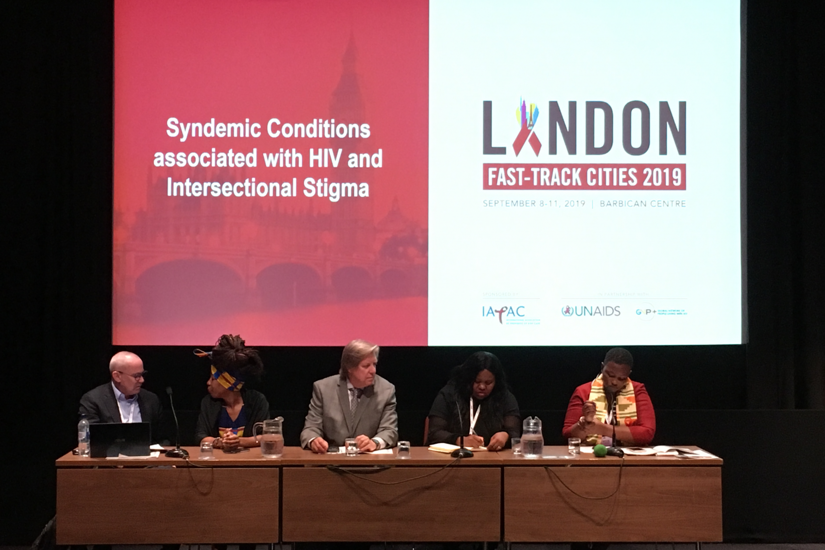Our José Mejía, HIV Peer Support Manager, Anders Neilson, GMI & HIV Prevention Manager, and Mark Delacour, Acting Director of External Affairs, reflect on some of the takeaways for us all from today's conference:
Governance
- We can have a positive impact on health by changing our governance - moving from payment by results and other classic industrialised models of healthcare to a community value-based system. Measuring social and other determinants of health beyond just the clinical determinants.
- Potential benefits of making community organisations part of the implementation of a universal healthcare system.
- Recognising the conflict for many organisations who are funded by institutions that they need to be holding to account.
Gender
- Need for clear messaging around sexual empowerment of women.
- Need for more HIV services tailored for women - women-centred integrated services.
- Ageing with HIV generally needs more research, but understanding the impact on specific things such as menopause is lacking. Emerging issues around HIV and ageing are issues that already disproportionately effect women.
- Women are over-represented in other disadvantaged groups.
- Lack of engagement and inclusion of women, ranging from clinical trials through to policy and decision making around HIV.
- Need for education and tailored services that empower women and young girls.
Partnerships
- Consider how organisations can support the convening around a cause or campaign, and beyond simply funding work.
- Look to philanthropists to support the scaling of services rather than routine service delivery.
Intersectionality
- Mental health issues, substance misuse, and other syndemic conditions put people at higher risk of acquiring HIV and disproportionately affect people living with HIV.
- Mental health services have their own resource issues, so perhaps HIV sector needs to become a better advocate - putting mental health at the core of our work.
- Where STIs are on the rise this increases the risk of acquiring HIV. We need to address all STIs to get HIV to zero.
- With PrEP and U=U we have extra opportunities to screen for STIs.
- Intimate Partner Violence (IPV) is a global health issue, impacting people in different and same-sex relationships, but especially affecting women.
- People who experience physical and emotional abuse are more likely to acquire HIV. HIV also increases the possibility of IPV. With IPV prevalence higher for adolescent girls and young women.
- Syndemic conditions carry another layer of stigma on top of the stigma associated with HIV.
Lobbying
- In many countries and cities, organisations still struggle to get HIV, TB and LGBT issues on the political agenda.
- Global organisations usually don’t have success in trying to impose standards or make suggestions - local organisations are key - with the right allies internationally.
- The majority of politicians want the best for their people, so good to focus on building common ground and alignment with priorities - understanding your audience and framing your arguments.
Treatment
- Good progress being made towards effective injectables, implants and patches. With evidence demonstrating these treatment methods would be preferable, and especially useful for people with adherence issues. Though consideration needed around ease of stopping and switching treatments.
